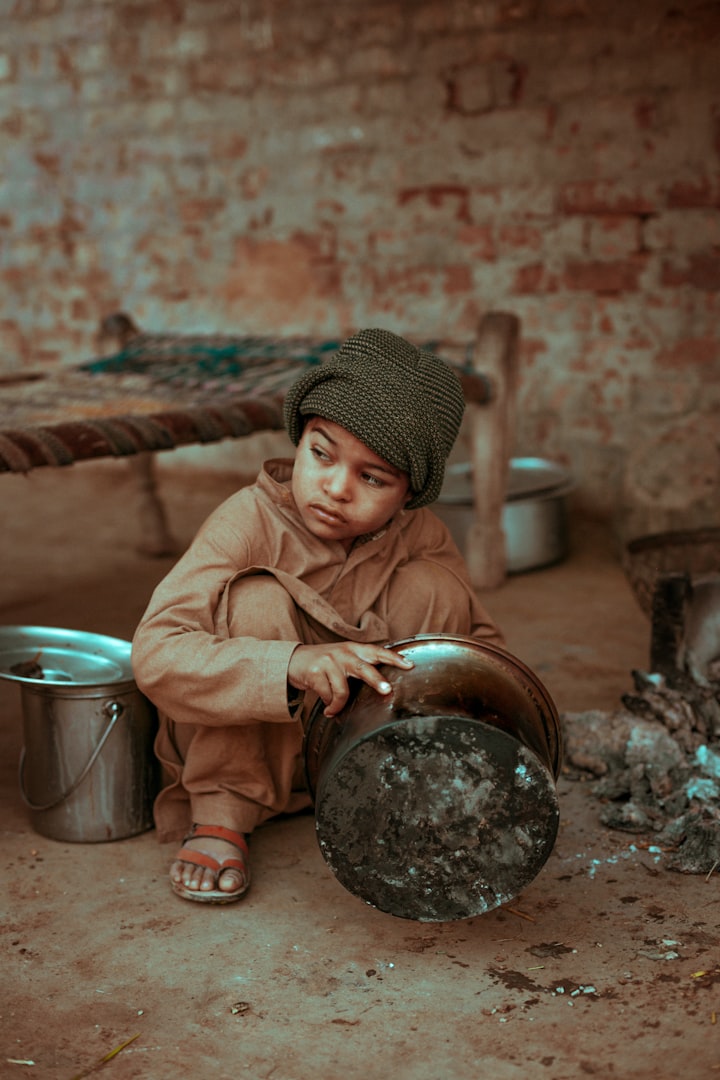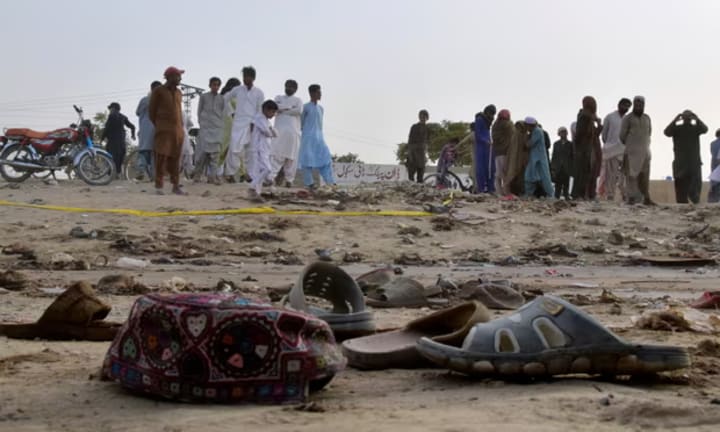Twin suicide attacks underline the depth of Pakistan’s crisis
Escalating violence comes at a time when the economy is in tatters and the caretaker government powerless

The horrifying

scenes witnessed on Friday in Pakistan have unfortunately become all too common. This time, a twin attack occurred, targeting a procession commemorating the birthday of the prophet Muhammad and a police station. The suicide bombings resulted in the tragic loss of nearly 60 lives and left hundreds injured.
Although no group has claimed responsibility yet, officials and analysts suspect the involvement of Islamic State – Khorasan (IS-K). This group has recently regrouped and intensified its militant activities in Pakistan, causing significant devastation and showing no signs of being contained. The resurgence of the Pakistan Taliban, which has been responsible for numerous deadly attacks in recent months, further exacerbates the country's deteriorating security situation, which is currently at its worst in years.
IS-K previously claimed responsibility for a suicide bombing at a political rally in July, targeting a party closely associated with the Taliban in Afghanistan. This attack resulted in the deaths of 54 individuals. IS-K presents itself as an even more extremist Islamist group than the Taliban and has targeted its rival in both Afghanistan and Pakistan for what it perceives as a lack of strict enforcement of sharia law. The religious procession that was tragically targeted on Friday morning aligns with IS-K's vehement opposition to such events.
The location of the blast, Mastung, situated in the troubled region of Balochistan, has long been a center for radical madrassas and extremist Islamic groups. Many violent attacks have been traced back to this area. Balochistan has been plagued by a separatist insurgency, and it is alleged that Pakistan's military has tolerated and even sponsored local Islamist militant groups in Mastung as a means to combat Baloch separatists. Unfortunately, this strategy has proven deadly, as many fighters from these groups have subsequently joined al-Qaida and later IS-K.
In 2018, prior to the country's most recent elections, Pakistan experienced one of its most devastating militant attacks in Mastung. During this incident, IS-K militants targeted a political rally, resulting in the tragic deaths of nearly 150 individuals, including a prominent Baloch politician.
Zahid Hussain, an author specializing in Islamist extremism, expressed concern over the resurgence of violence and militancy after a period of relative calm. He highlighted the lack of a comprehensive policy to counter extremism in Pakistan, as well as the absence of effective measures to address the violence in areas currently under militant control. Despite being aware of the rise of Islamic extremist groups in the region, no action was taken to address the situation.
As Pakistan prepares for its upcoming general election at the end of January, analysts and politicians are apprehensive about the potential for further bloodshed. While Friday's bombings may not be directly linked to the election, there are concerns that the escalating rivalry between the Pakistan Taliban and IS-K, as both groups vie for influence, will lead to continued attacks that are difficult for the military to suppress.
The north-west province of Khyber Pakhtunkhwa already faces a significant presence of the Pakistan Taliban, largely due to misguided efforts by former Prime Minister Imran Khan to repatriate thousands of Taliban fighters from Afghanistan back to Pakistan. Unfortunately, these efforts only resulted in the border regions falling under the control of militants.
The recent upsurge in domestic terrorist activities, largely influenced by the Taliban's ascension in Afghanistan, presents a grave challenge for Pakistan. This unfortunate development coincides with an already dire economic crisis and significant political instability within the country. Currently, Pakistan is being governed by a caretaker government with limited authority, while its prominent political figure, Khan, remains incarcerated. Furthermore, the scheduled date for the general election has been repeatedly postponed. The anticipated return of former Prime Minister Nawaz Sharif in October, after three years of hiding in the UK under the guise of medical treatment to evade imprisonment, is expected to exacerbate the prevailing political turmoil.
Hussain aptly remarked, "Initially, Pakistan faced an economic crisis, followed by a political crisis, and now it confronts a militancy crisis." Even if the upcoming election proceeds as planned, it is anticipated to be a challenging period for Pakistan.
About the Creator
ABDUL RASHID
Hi my name is Abdul Rashid a novelist. Seeking opportunities to continue exploring the world of fiction and connecting with a wider audience through my writing. People who show my story them satisfaction is my satisfaction.
Enjoyed the story? Support the Creator.
Subscribe for free to receive all their stories in your feed. You could also pledge your support or give them a one-off tip, letting them know you appreciate their work.






Comments (2)
What a mess. Not sure any other country can really help them
Great work⚖️